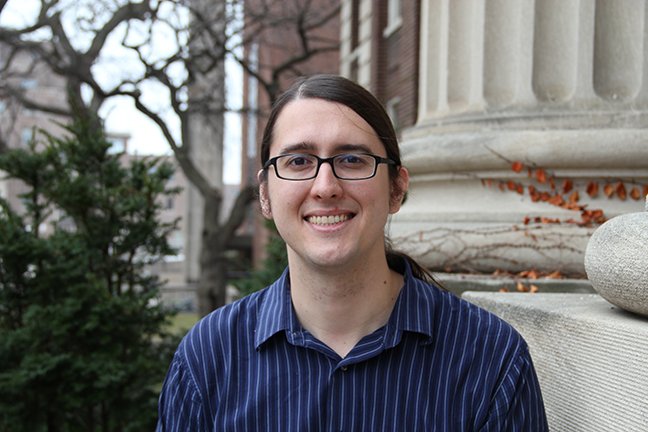Professor Goodpaster receives NSF CAREER Award

Professor Jason Goodpaster received a 2020 National Science Foundation CAREER award in the Division of Chemistry's Chemical Theory, Models and Computational Methods program. The award aims to support junior faculty members who embody the role of ideal teacher-scholars through the integration of education and research while supporting the mission of their organization, and provides $500,000 over five years.
Professor Goodpaster is seeking to develop computational methods that enable the accurate calculation of energies of molecules and solids utilizing machine learning (ML). Highly accurate calculations of large molecules can require thousands of processors and take days to complete each calculation. The ability to understand the properties of these compounds is limited. Machine learning offers the ability to leverage many small calculations and combine them to accurately calculate the properties of large molecules such as proteins or industrial catalysts.
In this project, Professor Goodpaster and his research team will produce new state-of-the-art electronic structure methods with improved accuracy and computational efficiency. The project will develop and assess the accuracy of different machine learning methods, specifically different machine-learning features and regression algorithms, in predicting the Full Configuration Interaction energy. The researchers will also develop deep learning networks to predict the Full Configuration Interaction energy, and produce computationally efficient algorithms and code for these approaches. With the ML methodologies developed, they will be directly applied and combined with quantum embedding theory to study a variety of complex electronic structure problems such as molecular magnets and metal oxides to benchmark the accuracy of these new methods and gain fundamental insights in these complicated systems.
The Goodpaster group is also developing an outreach program targeting K-12 students from historically underrepresented and underprivileged groups. His educational program seeks to encourage these students to pursue higher education, specifically in STEM fields. Part of this program involves training high school students to perform chemistry research.
Goodpaster joined the Department of Chemistry as an assistant professor in 2016. He was post-doctoral researcher at the Joint Center for Artificial Photosynthesis at the Lawrence Berkeley National Laboratory, earned his doctorate in chemical engineering from the California Institute of Technology and received his bachelor’s degree in chemical engineering from the University of Illinois Urbana-Champaign.